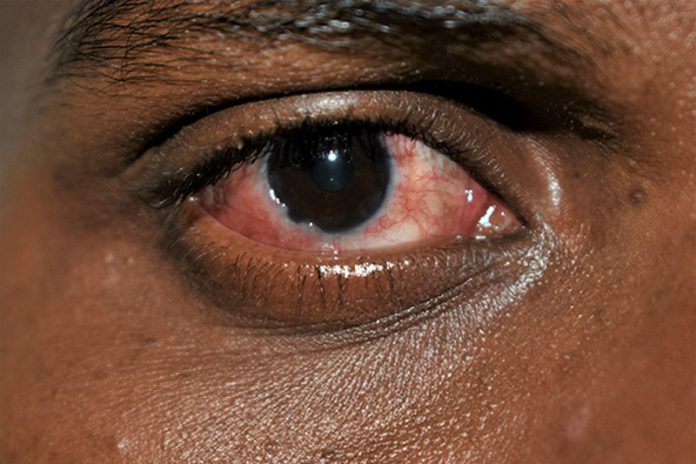The Ghana Optometric Association (GOA) has confirmed the surge in Acute Hemorrhagic Conjunctivitis, popularly known as ‘Apollo’ an eye infection in the country.
A statement signed by GOA National Secretary, Dr. Yaw Osei Akoto said most optometrists and other eye care professionals had recorded cases of Apollo in their practices across the country, an indication that there was a surge.
“Apollo” is spreading very fast in most communities. However, once you have it, do not panic and seek early eye care in order to prevent its spread and possible complications,” the statement said.
It said, “Apollo” was an inflammation of the thin transparent layer (conjunctiva) covering the white part (sclera) of the eye which is caused by viruses such as enterovirus 70 and coxsackie virus A24.
The condition, which could also be termed viral conjunctivitis, spreads very fast, with some of the signs and symptoms, including profuse tearing of the eyes, serious watery discharges, pain in the eyes, conjunctival redness, lid swelling, sandy sensations, and sub-conjunctival haemorrhages.
It noted that although it was usually self-limiting, eye drops were prescribed for the patient to prevent secondary bacterial infection and also limit severe inflammatory signs that might present with conjunctivitis.
The statement advised the public to seek medical care from an optometrist, ophthalmologist, or ophthalmic nurse, explaining that the possible complications in severe Apollo cases were superficial punctate keratitis and punctate scars on the cornea.
To prevent the spread of the eye condition, the Association warned the public against touching or rubbing of their eyes and hand shaking, while encouraging regular washing of hands with soap and water, regular use of hand sanitizers, and rubbing alcohol.
Infected persons are also urged to discard tissues used in cleaning the eyes and to avoid using handkerchiefs to clean discharging eyes.
It cautioned that once someone was infected with ‘Apollo’ they should stay away from school, workplace or any social gathering.
The statement advised heads of schools and organizations to let their staff and students infected with “apollo” stay away from their workplaces to limit the spread.
It noted some harmful practices that people infected with ‘Apollo’ engage in, including using sea water to treat the eye, instilling human breast milk or urine in the eyes, applying herbal preparations to the eye, seeking eye care from unqualified practitioners, and using eye drops prescribed for others.
The Association reminded the public that “Apollo” could not be contracted by looking into the face of an infected person; rather, the spread was by physical contact.

